第18章 Letter XIV
We have been brought to the idea of such a correlation between the two impulsions that the action of the one establishes and limits at the same time the action of the other,and that each of them,taken in isolation,does arrive at its highest manifestation just because the other is active.
No doubt this correlation of the two impulsions is simply a problem advanced by reason,and which man will only be able to solve in the perfection of his being.It is in the strictest signification of the term:the idea of his humanity;accordingly,it is an infinite to which he can approach nearer and nearer in the course of time,but without ever reaching it.
"He ought not to aim at form to the injury of reality,nor to reality to the detriment of the form.He must rather seek the absolute being by means of a determinate being,and the determinate being by means of an infinite being.He must set the world before him because he is a person,and he must be a person because he has the world before him.He must feel because he has a consciousness of himself,and he must have a consciousness of himself because he feels."It is only in conformity with this idea that he is a man in the full sense of the word;but he cannot be convinced of this so long as he gives himself up exclusively to one of these two impulsions,or only satisfies them one after the other.For as long as he only feels,his absolute personality and existence remain a mystery to him,and as long as he only thinks,his condition or existence in time escapes him.
But if there were cases in which he could have at once this twofold experience in which he would have the consciousness of his freedom and the feeling of his existence together,in which he would simultaneously feel as matter and know himself as spirit,in such cases,and in such only,would he have a complete intuition of his humanity,and the object that would procure him this intuition would be a symbol of his accomplished destiny,and consequently serve to express the infinite to him -since this destination can only be fulfilled in the fullness of time.
Presuming that cases of this kind could present themselves in experience,they would awake in him a new impulsion,which,precisely because the two other impulsions would co-operate in it,would be opposed to each of them taken in isolation,and might,with good grounds,be taken for a new impulsion.
The sensuous impulsion requires that there should be change,that time should have contents;the formal impulsion requires that time should be suppressed,that there should be no change.Consequently,the impulsion in which both of the others act in concert -allow me to call it the instinct of play,till I explain the term -the instinct of play would have as its object to suppress time in time to conciliate the state of transition or becoming with the absolute being,change with identity.
The sensuous instinct wishes to be determined,it wishes to receive an object;the formal instinct wishes to determine itself,it wishes to produce an object.Therefore the instinct of play will endeavor to receive as it would itself have produced,and to produce as it aspires to receive.
The sensuous impulsion excludes from its subject all autonomy and freedom;the formal impulsion excludes all dependence and passivity.But the exclusion of freedom is physical necessity;the exclusion of passivity is moral necessity.
Thus the two impulsions subdue the mind:the former to the laws of nature,the latter to the laws of reason.It results from this that the instinct of play,which unites the double action of the two other instincts,will content the mind at once morally and physically.Hence,as it suppresses all that is contingent,it will also suppress all coercion,and will set man free physically and morally.When we welcome with effusion some one who deserves our contempt,we feel painfully that nature is constrained.
When we have a hostile feeling against a person who commands our esteem,we feel painfully the constraint of reason.But if this person inspires us with interest,and also wins our esteem,the constraint of feeling vanishes together with the constraint of reason,and we begin to love him,that is to say,to play,to take recreation,at once with our inclination and our esteem.
Moreover,as the sensuous impulsion controls us physically,and the formal impulsion morally,the former makes our formal constitution contingent,and the latter makes our material constitution contingent,that is to say,there is contingence in the agreement of our happiness with our perfection,and reciprocally.The instinct of play,in which both act in concert,will render both our formal and our material constitution contingent;accordingly,our perfection and our happiness in like manner.And on the other hand,exactly because it makes both of them contingent,and because the contingent disappears with necessity,it will suppress this contingence in both,and will thus give form to matter and reality to form.In proportion that it will lessen the dynamic influence of feeling and passion,it will place them in harmony with rational ideas,and by taking from the laws of reason their moral constraint,it will reconcile them with the interest of the senses.